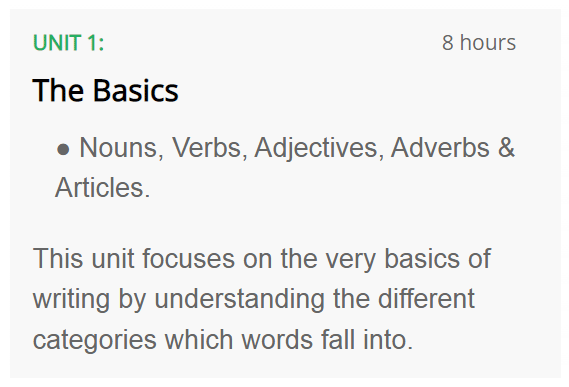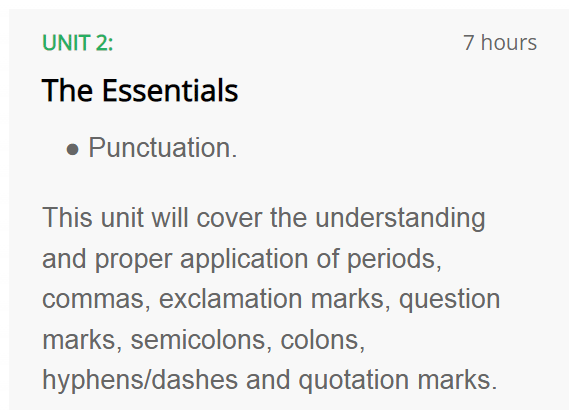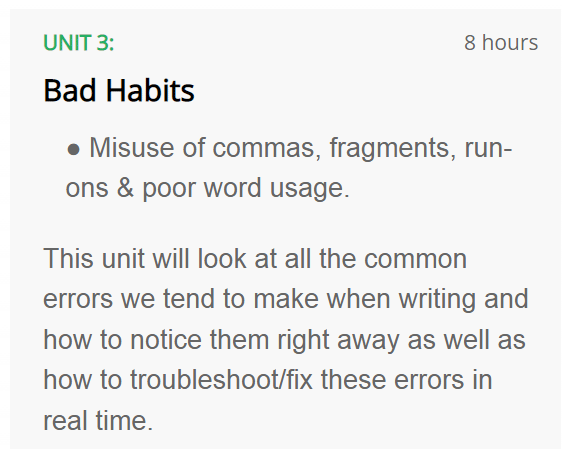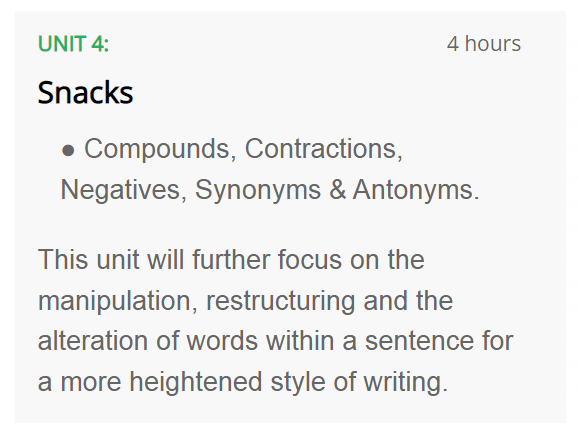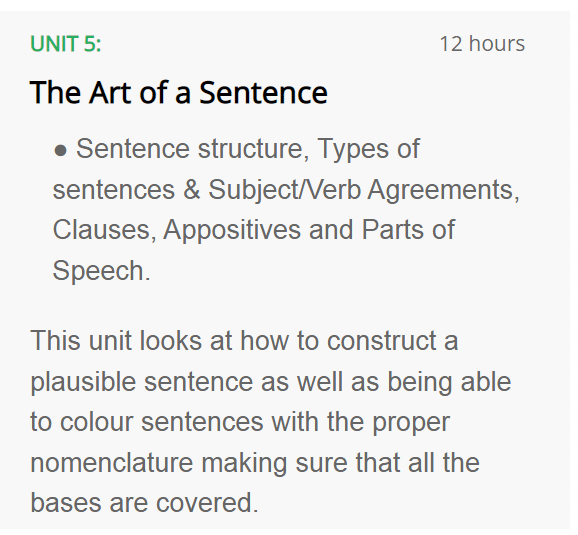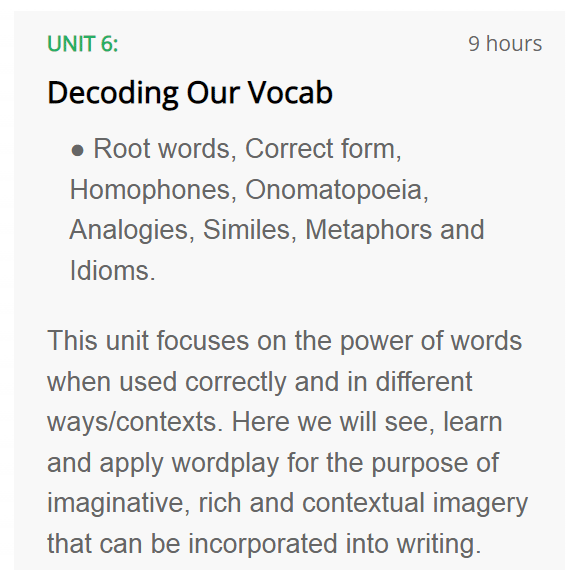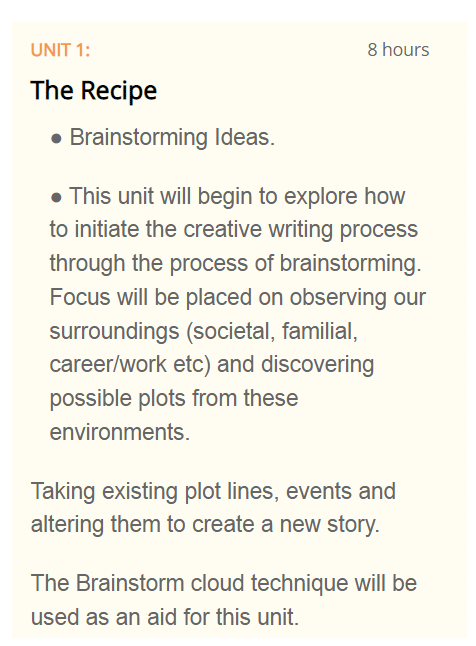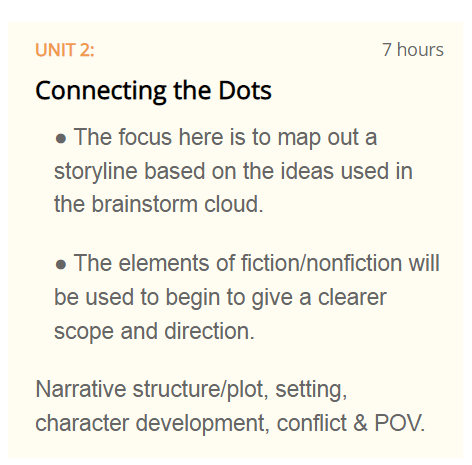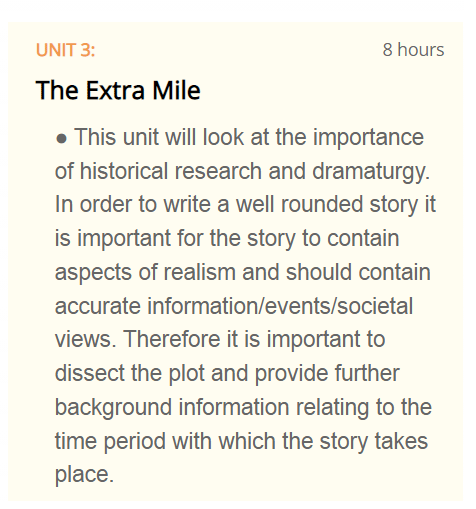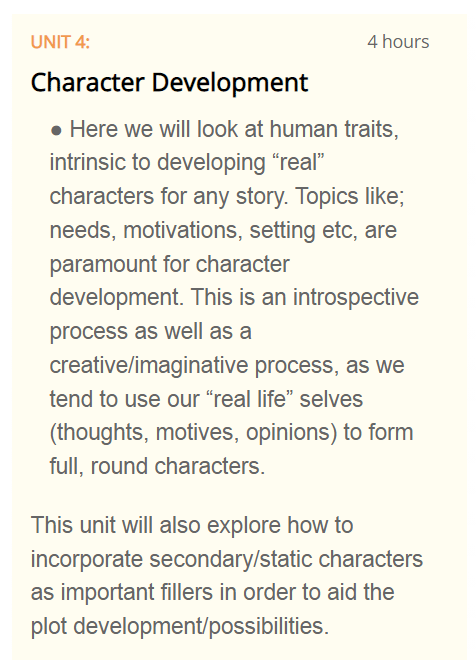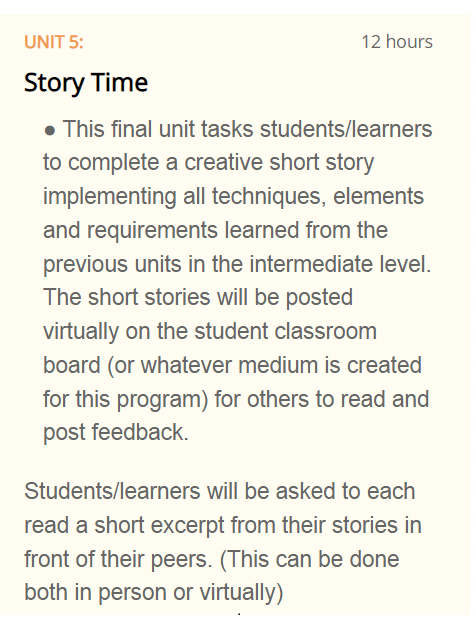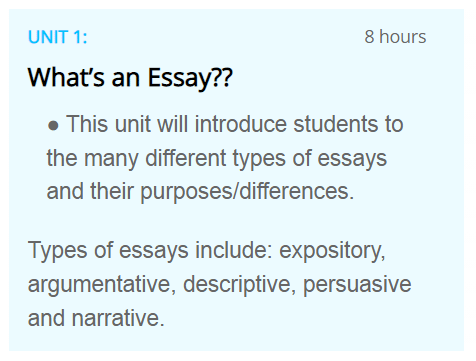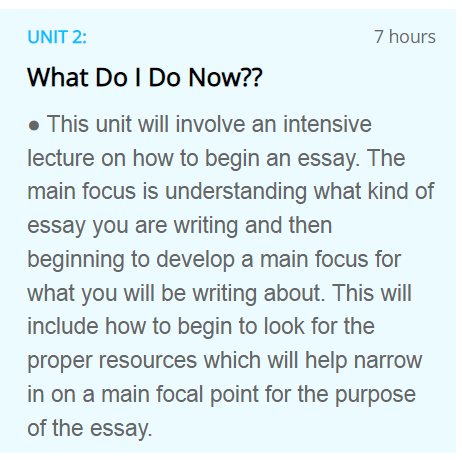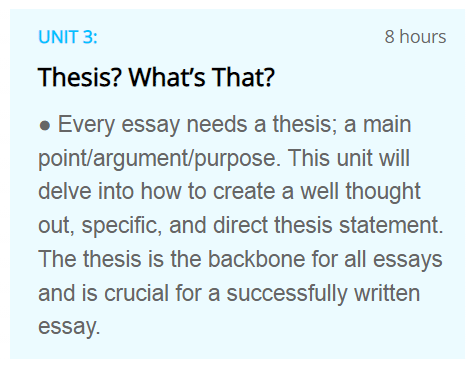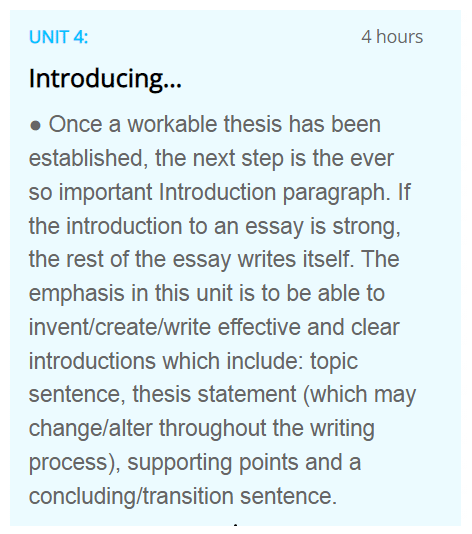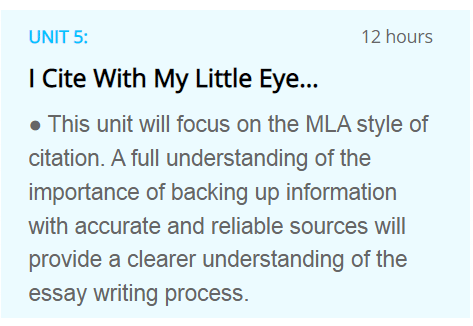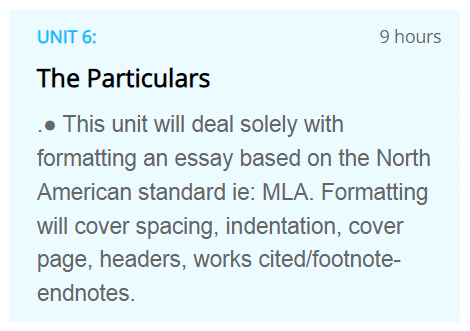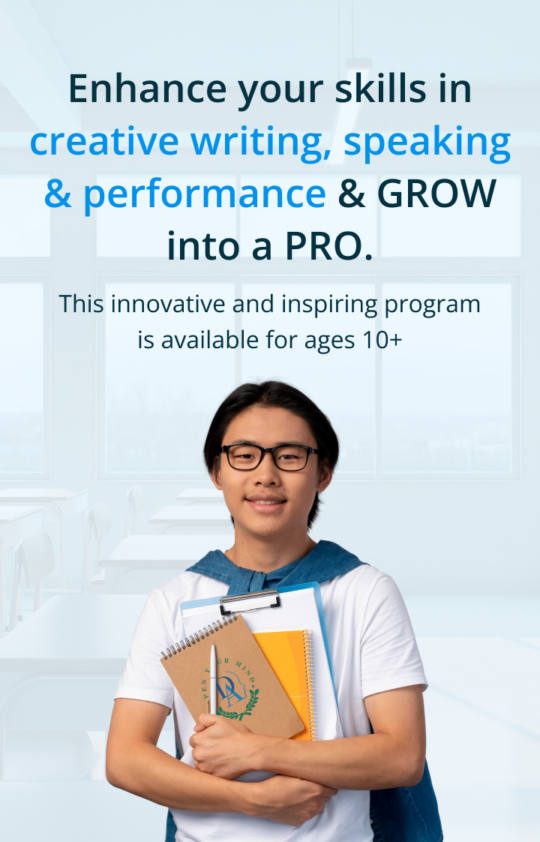
Our Program
Learn from one of our many talented and expert teachers.
● Nouns, Verbs, Adjectives, Adverbs & Articles.
This unit focuses on the very basics of writing by understanding the different categories which words fall into.
● Punctuation.
This unit will cover the understanding and proper application of periods, commas, exclamation marks, question marks, semicolons, colons, hyphens/dashes and quotation marks.
● Misuse of commas, fragments, run-ons & poor word usage.
This unit will look at all the common errors we tend to make when writing and how to notice them right away as well as how to troubleshoot/fix these errors in real time.
● Compounds, Contractions, Negatives, Synonyms & Antonyms.
This unit will further focus on the manipulation, restructuring and the alteration of words within a sentence for a more heightened style of writing.
● Sentence structure, Types of sentences & Subject/Verb Agreements, Clauses, Appositives and Parts of Speech.
This unit looks at how to construct a plausible sentence as well as being able to colour sentences with the proper nomenclature making sure that all the bases are covered.
● Root words, Correct form, Homophones, Onomatopoeia, Analogies, Similes, Metaphors and Idioms.
This unit focuses on the power of words when used correctly and in different ways/contexts. Here we will see, learn and apply wordplay for the purpose of imaginative, rich and contextual imagery that can be incorporated into writing.
● Brainstorming Ideas.
● This unit will begin to explore how to initiate the creative writing process through the process of brainstorming. Focus will be placed on observing our surroundings (societal, familial, career/work etc) and discovering possible plots from these environments.
Taking existing plot lines, events and altering them to create a new story.
The Brainstorm cloud technique will be used as an aid for this unit.
● The focus here is to map out a storyline based on the ideas used in the brainstorm cloud.
● The elements of fiction/nonfiction will be used to begin to give a clearer scope and direction.
Narrative structure/plot, setting, character development, conflict & POV.
● This unit will look at the importance of historical research and dramaturgy. In order to write a well rounded story it is important for the story to contain aspects of realism and should contain accurate information/events/societal views. Therefore it is important to dissect the plot and provide further background information relating to the time period with which the story takes place.
● Here we will look at human traits, intrinsic to developing “real” characters for any story. Topics like; needs, motivations, setting etc, are paramount for character development. This is an introspective process as well as a creative/imaginative process, as we tend to use our “real life” selves (thoughts, motives, opinions) to form full, round characters.
This unit will also explore how to incorporate secondary/static characters as important fillers in order to aid the plot development/possibilities.
● This final unit tasks students/learners to complete a creative short story implementing all techniques, elements and requirements learned from the previous units in the intermediate level. The short stories will be posted virtually on the student classroom board (or whatever medium is created for this program) for others to read and post feedback.
Students/learners will be asked to each read a short excerpt from their stories in front of their peers. (This can be done both in person or virtually)
● This unit will introduce students to the many different types of essays and their purposes/differences.
Types of essays include: expository, argumentative, descriptive, persuasive and narrative.
● This unit will involve an intensive lecture on how to begin an essay. The main focus is understanding what kind of essay you are writing and then beginning to develop a main focus for what you will be writing about. This will include how to begin to look for the proper resources which will help narrow in on a main focal point for the purpose of the essay.
● Every essay needs a thesis; a main point/argument/purpose. This unit will delve into how to create a well thought out, specific, and direct thesis statement. The thesis is the backbone for all essays and is crucial for a successfully written essay.
● Once a workable thesis has been established, the next step is the ever so important Introduction paragraph. If the introduction to an essay is strong, the rest of the essay writes itself. The emphasis in this unit is to be able to invent/create/write effective and clear introductions which include: topic sentence, thesis statement (which may change/alter throughout the writing process), supporting points and a concluding/transition sentence.
● This unit will focus on the MLA style of citation. A full understanding of the importance of backing up information with accurate and reliable sources will provide a clearer understanding of the essay writing process.
.● This unit will deal solely with formatting an essay based on the North American standard ie: MLA. Formatting will cover spacing, indentation, cover page, headers, works cited/footnote-endnotes.
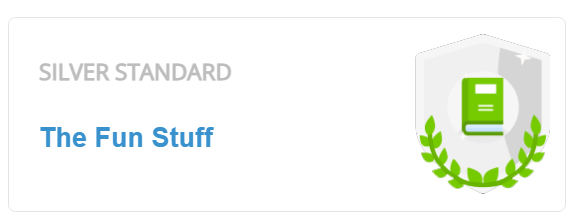
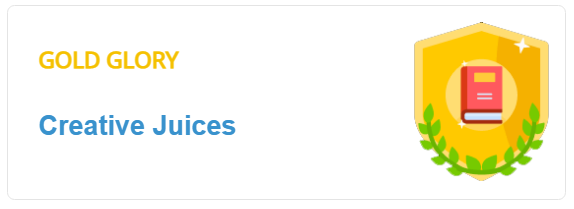
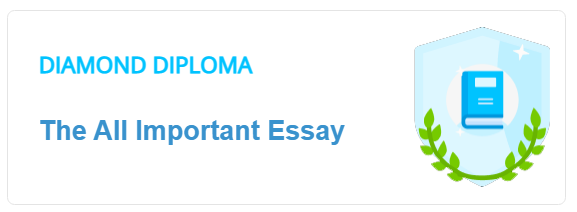
Certificate
Earn a certificate for each level to resemble your growth and success.



Public Speaking Program
Lessons in performance lead to lessons in life. Tap into a treasure chest of valuable tools and DISCOVER the disciplined, self-confident and effective performer within you.


Public Speaking Program
Lessons in performance lead to lessons in life. Tap into a treasure chest of valuable tools and DISCOVER the disciplined, self-confident and effective performer within you.
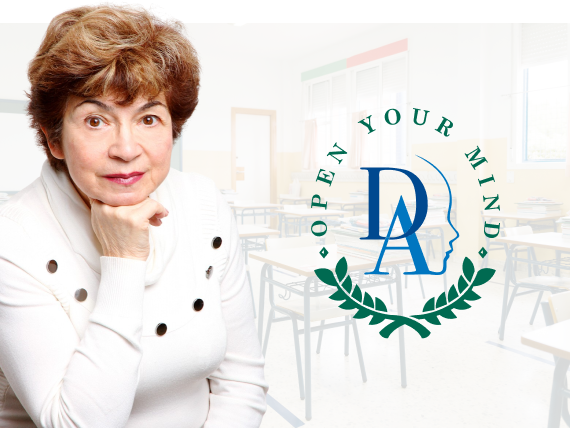
Discovery Academy was founded in 2006 by Dr. Marina Blumin
About Us
Dr. Blumin is a Physics PhD researcher with nearly 20 years of nanotechnology research at the University of Toronto and over 40 years of teaching experience in Math and Science. Together with trusted education professionals, we developed unique academic programs to help our children succeed in our ever-changing world!
Read More

Discovery Academy was founded in 2006 by Dr. Marina Blumin
About Us
Dr. Blumin is a Physics PhD researcher with nearly 20 years of nanotechnology research at the University of Toronto and over 40 years of teaching experience in Math and Science. Together with trusted education professionals, we developed unique academic programs to help our children succeed in our ever-changing world!
Read More
Our Statistics
16
Years in operation
+700
Students Enrolled Yearly
59
High School Courses Offered
22
Teachers





